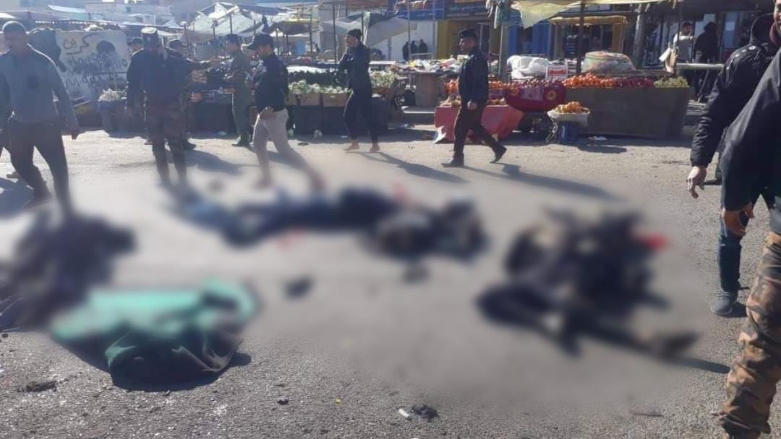Kurdistan Region opens its hospitals to those wounded in deadly Baghdad bombings

ERBIL (Kurdistan 24) – The autonomous Kurdistan Region announced on Thursday that it was opening the doors of its hospitals to receive those wounded in the twin suicide bombings that struck a Baghdad market that morning and left dozens of victims killed or wounded.
"Based on Kurdistan Regional Government (KRG) Prime Minister’s decision, all hospitals in the Kurdistan Region have been notified and prepared to take in the wounded in the Baghdad bombings to receive the appropriate treatment,” read a KRG statement.
The attack rocked a crowded outdoor used clothing market adjacent to Tayran Square in central Baghdad's Bab al-Sharqi neighborhood, killing 28, according to security sources. The Ministry of Health has announced that the two bombers left 32 dead and 110 wounded.
Read More: Twin bombing in Baghdad leaves at least 28 dead, Iraq’s military says
The area is just a few minutes' walk from Tahrir Square, the main gathering space in the capital for ongoing national demonstrations protesting widespread institutional corruption, chronic shortfalls in public services, and a poor standard of living that began in October 2019 and led to the resignation of the previous prime minister and administration.
Videos and pictures of the deadly attacks circulating on social media showed the dead and injured bodies of multiple victims scattered across the market.
No group has yet claimed responsibility for the incident.
KRG Health Minister Saman Barzinji informed Baghdad's Minister of Health Hassan al-Tamimi in a phone call that the Kurdistan Region "is ready for any appropriate assistance and that all hospitals are ready to receive and treat the wounded."
Editing by John J. Catherine